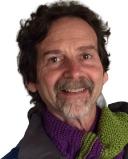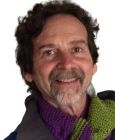Spirituality
Interview on The Spirituality of Awe
Reflections on the Challenge of Awe in the Digital Age
Posted February 11, 2018
Interview with Kirk Schneider by Britt-Mari Sykes
Engaged conversation about the impact of technological advances on how we experience ourselves and our relationships to others and the world is increasingly important. Among my clients I see a steady increase in experiences of burnout and isolation but also a great desire for deeply meaningful and vibrant engagement. I was thus eager to speak with existential-humanistic psychologist Kirk Schneider whose most recent book is The Spirituality of Awe: Challenges to the Robotic Revolution.
BMS
Too often we assume that technological advances mean commensurate and positive benefits for our advancement as human beings. Throughout your book you challenge this assumption when you speak of the growing “sanitization” of life, the “atrophy of deeply personal forms of expression” and our developing inability to accept and live out of the fullness of our human complexity. Can you comment on the erosions versus advances to our uniquely human experiencing and expression?
KS
The erosions are both subtle and gross. At the gross level, I believe human beings are becoming increasingly machine-like in both behavior and experience. This is seen in some of the early data we have on so-called “cyberbabies,” where kids who grow up with hand-held devices not only become wedded to those devices but appear to have decreased attention spans, capacities for empathy, capacities for socializing and outdoor activity. They also appear to have increasing bouts of depression, isolation, and self-devaluation (often due to the instant and constant (!) comparisons with peers in “chatrooms,” photographic displays, and frequencies communication). Finally, the evidence of increases in cyber-addiction is burgeoning, to the point where some authorities believe this problem has reached an epidemic scale.
On the subtler level, and much that I focus on in my new book The Spirituality of Awe: Challenges to the Robotic Revolution [http://amzn.to/2plZte2], it is not only individuals who are becoming machine-like it is society and the worldviews it hinges on. Our whole socio-economic system for example is now predicated on a machine model for living, an efficiency model where speed, instant results and appearance and packaging are permeating every sector of living, from childrearing to education to the workplace to government and politics. There seems very little room for deliberating and pressing beyond labels and stereotypes. The reliance on algorithms to profile people is a prime example of this. If people can be massed together in terms of key words, phrases, monikers etc. than we are no longer dealing with human beings but human things that can be deluded and manipulated at will. The encroachment of virtual reality in our cities, workplaces, and homes, not to mention government communications and commercial branding has the effect of confusing the “map” with the “territory” of our lives. But at least thus far, maps do not contain paradoxes, ambiguities, and nuances of human feeling and expression. While maps can look deceptively “real,” we have major questions emerging about our willingness to accept such replicas into the core of our lives.,
BMS
You advocate the integration of a depth psychological approach in both education and the workplace. I was particularly interested in your proposal for depth facilitators and depth healers as I work with many clients in my own practice who are struggling with burnout, struggling under the expectations of efficiency models of productivity, and yet wanting to be personally and meaningfully connected and engaged with what they do. Could you elaborate on the important role depth facilitators could play in the workplace?
KS
Yes, I have a whole chapter on this in The Spirituality of Awe called The New Army of Depth Facilitators. I genuinely believe that in order for our species (that is, humanity as we know it) to preserve the best of who we are, we will need the equivalent of an army of folks trained in depth therapeutic principles of healing on the scale of militaries now devoted to debilitating combat. This I believe is what William James essentially meant when he called for a “moral equivalent of war.” Indeed if we really prioritized substantive, long term flourishing, we would find ways to support training in depth therapeutic principles of interpersonal encounter for every major sector of our society. This would give people like me, and those you mentioned a chance to genuinely “meet” others in a way that helps us all to live more tolerant, enriched lives. The one-on-one aspect of this encounter—or what I call “experiential democracy dialogue”—is critical, because very different things happen at that level of personal and intimate relating, than happen in groups or formal deliberative bodies. We see this salutary difference in psychotherapy all the time, and certainly in couples therapy. We have tools now that if applied widely could make for a much more “awe-based” (that is, humble and wondrous, adventurous) life-experience than our current compartmentalized and adversarial world offers. I think many of us—and especially our youth—would relish such mediation opportunities as a complement to or maybe even replacement for some of the soul-dulling engagements of conventional business, particularly if decently compensated. So this is my pitch for the equivalent of an army or public works program of depth facilitation. Here below, for example, is how an experiential democracy dialogue might proceed in a particularly challenging vocation of community policing, but the principles could be applied broadly in diverse settings.
My thanks to Britt-Mari Sykes for permission to publish this excerpt. To see the full interview (along with others of note) visit her website http://brittmarisykes.ca/interview


